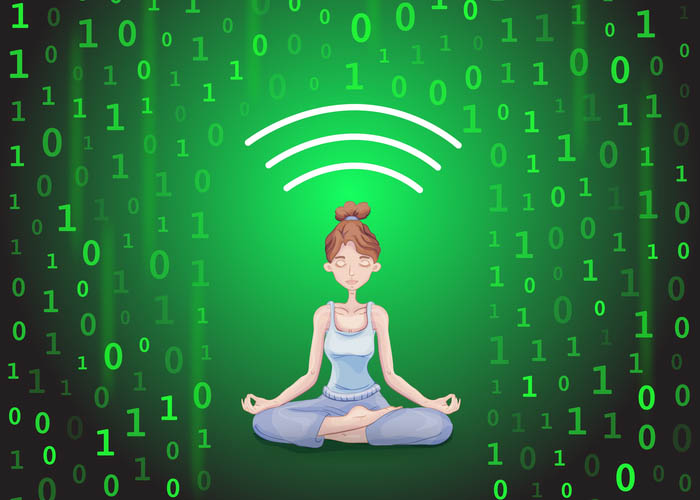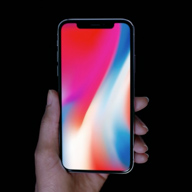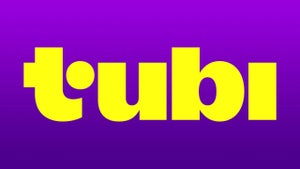News
Do you need a digital detox?

- March 19, 2019
- Updated: July 2, 2025 at 5:13 AM


Technology is the backbone of our lives. No joke.
More and more, we’ve been hearing about these digital cleanses, diets, or detoxes, aimed at reconnecting with society.
What are these so-called digital detoxes, and do they actually work?
We decided to take a look at the idea of the digital detox to see if it’s a whole lot of BS or if there’s something to it. Let’s have a look to see if the “screen-free week” is worth a shot.
What is a digital detox, anyway?
View this post on Instagram
A digital detox, as per Techopedia, is a when someone quits using social media or a piece of digital equipment and instead, use that time for social interactions or offline activities. You can do a digital detox simply by pausing regular use, deleting apps, or otherwise refraining from social media or other online activities.
There is also a whole market of digital detox retreats — which might sound like a rehab center for Facebook addicts, but these retreats seem more focused on getting people away from their phones in an effort to connect with themselves, with others, and potentially, with nature.
Still, there’s a lot of weird diet language associated with this trend. Vogue and Shape, among others, have written articles that talk about cutting back on screen time like they might have talked about cutting calories two decades ago.
Psychology Today recommends “fasting” from electronics. And Quartz published a whole piece on digital detoxing, using food metaphors to emphasize each point.
MIT’s Carlo Ratti makes an interesting counterpoint to all of this “digital detox nonsense.” He points out that virtual assistants like Alexa, Siri, and the Google Assistant are pushing technology into the background — away from our faces.
Ratti gets at the idea that the internet of things might be the thing that saves us from the digital isolation/addiction/whatever these detoxes are supposed to fix.
Still, he makes the point that we do benefit from pulling our eyes away from the screen now and again — but says we don’t need to shun technology in the name of good health.

Complete guide to self-improvement: mind and body
Read Now ►DIY digital detox
The most basic form of the digital detox is changing some habits on your own. This might mean keeping your phone on do-not-disturb for a set amount of hours, switching to a manual alarm clock, or deactivating Facebook and Twitter.
Of course, attempting to do this on your own is more about self-control and implementing new habits — so some may find it hard to unplug without taking more dramatic steps.
Retreats — a.k.a. a $$$ screen-free week
Call it rehab or whatever, but those who have trouble unplugging on their own and the time and money to spare can shell out a couple thousand bucks for a digital detox. Prices are comparable to a yoga retreat — this digital detox retreat in Ibiza is $2,200, sans airfare.
The idea sounds, honestly, a bit dumb. But, it comes down to a branding thing. The name digital detox elicits some serious millennial burnout vibes — from someone who, like, just needs to get away from Instagram.
However, a lot of the detox experiences we found online sound kind of cool — and geared toward a wide range of analog interests. For example, this blogger detailed her experience in Canada’s Northwest Territories.
This retreat was a snow-covered outdoor adventure where participants went cross country skiing, ice fishing, and more. There’s also something like Camp Grounded, an adult summer camp featuring everything from arts and crafts to archery, improv, and stargazing. No screens, of course.

Top 3 nature and wildlife apps
Read Now ►Tech addiction therapy
Tech addiction therapy, unsurprisingly, is a thing now. It makes sense — experts are pushing for official disorder status in the DSM-5, and people do experience a range of issues related to technology.
There’s reSTART, a residential facility for people addicted to the internet, video gaming, social media, and gambling. In other cases, those who feel like they have a problem with technology addiction can seek the help of a traditional therapist that meets once a week.
Smartphone addiction symptoms include things like feeling anxious, stressed, angry, or nervous when separated from the phone.
Others experience a fear of being disconnected, a looming sense that something bad will happen if that person can’t connect to the internet.
Of course, there are likely several other ways that technology is impacting our mental health — for better or worse.

How to use Apple’s new Screen Time controls for iOS
Read Now ►How much screen time is healthy?

Screen time is a term that gets thrown around a lot, usually in the context of adults hand-wringing over the latest teen tech trends.
Unfortunately, there’s no prescribed amount of screen time indicative of healthy use. We all have different jobs and obligations that dictate a good chunk of that screen time, anyway.
That said, the average adult in the U.S. spends a whopping 11+ hours a day looking at some type of screen, which really seems like a lot.
Too much screen time could pose health risks: think back problems caused by poor posture or extended periods of sitting.
Eating in front of a screen can make us become unaware of what we’re eating — in some cases, causing us to eat more. And, there’s the favorite tip — keep screens out of the bedroom, as the glowing blue lights can keep you awake.
In all, though, it doesn’t seem like being around the screen itself is all that bad — it’s more a matter of remembering to eat well, exercise, and talk to actual people once in a while.
What’s healthy, however, depends on what you hope to change by spending less time online.
What’s the verdict on digital detoxing?
Digital detoxes — vacation or not — are a great way to get back in touch with physical activity, human connection, and could be an opportunity to make time for something new.
Obviously, we’re starting to see evidence that technology has similar effects on our brains as addictive drugs—and certainly qualifies as a behavioral addiction in the vein of sex or gambling addiction.
Our skepticism likely comes from a place of disliking the name, “digital detox.” However, like “Friendsgiving,” “Staycation,” or “Bromance” digital detox is a good thing with a dumb name.
Grace is a painter turned freelance writer who specializes in blogging, content strategy, and sales copy. She primarily lends her skills to SaaS, tech, and digital marketing companies.
Latest from Grace Sweeney
You may also like
 News
NewsThis free streaming service is standing up to the biggest players: how does it do it?
Read more
 News
NewsArtificial intelligence is transforming advertising: for better?
Read more
 News
NewsCan Blizzard make a comeback in 2026?
Read more
 News
NewsThe best game of 2025 has been disqualified from the Indie Game Awards because of AI
Read more
 News
NewsThis way you can make your internet browsing more sustainable: for a more eco-friendly 2026
Read more
 News
NewsThey have just released one of the best movies of 2025 on SkyShotime: perfect for Christmas
Read more